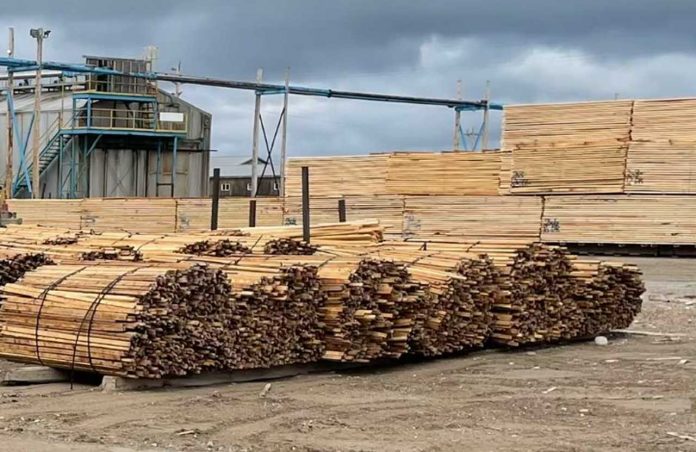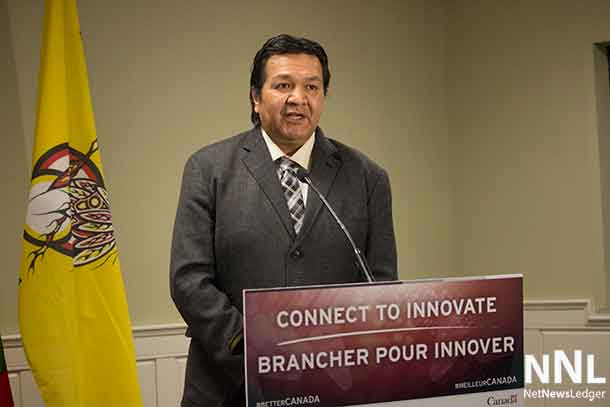Analyzing the potential impact on Northwestern Ontario’s economy as the U.S. threatens new trade barriers
Thunder Bay – BUSINESS – With President-Elect Donald J. Trump’s pledge to impose tariffs on all U.S. imports, Canadian industries face significant uncertainties that could have ripple effects on jobs, exports, and economic growth. For Thunder Bay and Northwestern Ontario, sectors like auto parts, softwood lumber, mining, and technology may see increased costs, lower demand, and supply chain disruptions. Here’s an industry-by-industry breakdown of how potential tariffs could reshape the local economic landscape.
Auto Parts and Vehicles: Northwestern Ontario’s Role in Canada’s Auto Sector
Canada’s automotive industry, concentrated in Ontario, could see substantial challenges if tariffs increase the cost of exporting cars and parts to the United States. Even though Thunder Bay isn’t a manufacturing hub for auto production, it plays a key role in Ontario’s supply chain, providing raw materials like steel and parts manufactured by smaller suppliers.
For auto parts specifically, tariffs could lead to cost increases, making Canadian products less competitive in the U.S. market. Canadian auto suppliers might face difficult choices between cutting prices, absorbing extra costs, or reducing production. For Northwestern Ontario, this shift could mean slower business activity in local firms that provide steel, aluminum, and other resources to major manufacturers.
The U.S. accounts for nearly 75% of Canada’s vehicle exports, making it a vital market. Without free trade advantages, these exports might face steep price hikes that could reduce demand for Canadian vehicles and parts. For Thunder Bay’s businesses linked to auto suppliers, these shifts might reduce orders and lead to job cuts.
Softwood Lumber: A Longstanding Trade Issue Made Worse
Softwood lumber has historically been a contentious trade issue between Canada and the U.S. Trump’s proposed tariffs add fresh uncertainty to an already strained relationship. The tariffs could heighten lumber costs, adding to the pressure on Northwestern Ontario’s forestry sector—a major local employer.
The region’s timber producers could see higher export costs to the U.S., making Canadian softwood less appealing in a competitive American market. For local companies, these tariffs could lead to cutbacks, slower production, and potentially even layoffs if demand drops sharply. Thunder Bay, which has several sawmills and forestry-related businesses, could be hit hard by the double impact of tariffs and already-low market prices.
The Canadian government may have to intervene to support the lumber industry, likely by exploring new markets beyond the U.S. or offering subsidies to affected businesses. However, this process would take time, leaving Northwestern Ontario’s lumber sector in a vulnerable position.
Mining and Natural Resources: Disrupted Demand for Canadian Minerals
Mining is another key sector for Northwestern Ontario, with communities like Thunder Bay dependent on mineral exports to the U.S., particularly iron ore and nickel. If tariffs are applied to these raw materials, U.S. manufacturers may look to reduce their dependence on Canadian suppliers, potentially shrinking demand for Canadian minerals. This shift could impact operations, slowing production, and hurting local employment.
As a response, Canadian mining companies may need to identify alternative markets for their exports, such as Asia or Europe. But building these trade channels will take time and investment, leaving Canada’s mining sector exposed to revenue losses in the near term.
For Northwestern Ontario, which relies heavily on mining for economic stability, this change could hinder local growth and development efforts.
Technology: A Challenge to Canada’s Emerging Tech Scene
Canada’s tech sector is rapidly expanding, but tariffs on technology products could hinder growth by making Canadian tech exports to the U.S. more expensive. For software and hardware firms in Canada, including smaller IT service providers in Thunder Bay, higher tariffs may create barriers to entry in the U.S. market.
Moreover, a tariff on tech could discourage American companies from investing in Canadian talent or forming partnerships with Canadian firms. For Northwestern Ontario’s growing tech community, this could mean fewer opportunities and reduced economic activity if cross-border collaborations stall.
The tech sector might face additional pressure from reduced access to U.S. goods and technology. Canada often relies on American software, hardware, and research facilities, and higher costs or delays in acquiring these resources could slow development efforts.
Potential Responses: Canada’s Path Forward
Given the potential impact of U.S. tariffs on these industries, Canada may need to pursue several key strategies:
- Diversifying Trade Markets: Canada could reduce its reliance on the U.S. by establishing stronger trade relationships with countries in Europe, Asia, and Latin America.
- Supporting Affected Industries: The Canadian government might consider financial support for impacted sectors, particularly in lumber and mining, which are key for Northwestern Ontario.
- Encouraging Local Innovation: Developing incentives for tech and auto manufacturing within Canada could help industries offset U.S.-imposed costs.
- Negotiating Trade Solutions: Canada and the U.S. could engage in new trade negotiations to mitigate the impact on critical sectors and preserve economic ties, especially for resource-based industries.
When Trump’s presidency begins in January 2025, Thunder Bay and the broader Northwestern Ontario community will need to prepare for potential disruptions and consider alternative market strategies.
Canada’s economy has always been closely linked with the U.S., but new tariffs could reshape these relationships and force local industries to adapt rapidly to stay competitive.







